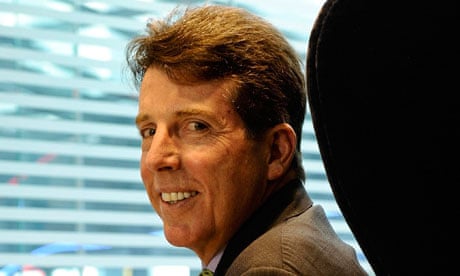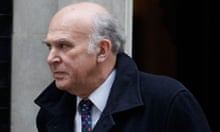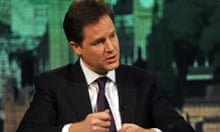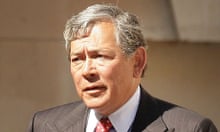Britain's major banks have been warned in the starkest terms that they need to "significantly" reduce their bonus pools or face conflict with major investors that want to call time on bumper payouts.
In a highly unusual step, an influential group of shareholders accounting for about 15% of the stock market last night wrote to the chairmen of the five biggest banks to make it clear that they would no longer tolerate the "business as usual" culture that has permeated the City since the 2008 banking crisis and want to see pay cuts for executive directors.
Just days after the Bank of England called on banks to restrict bonuses and dividend payments to shareholders, the Association of British Insurers (ABI) has told bank boards that pay deals for individual bosses – as well as their workforces – are high on their agenda.
The deputy prime minister, Nick Clegg, has also committed the government to a crackdown on top pay.
The letter has been sent to the chairmen of HSBC, Barclays, Standard Chartered and the bailed-out banks Royal Bank of Scotland and Lloyds Banking Group. It has also gone to the heads of the remuneration committees at each bank.
The move suggests pay deals for Stuart Gulliver, Bob Diamond, Peter Sands, Stephen Hester and António Horta-Osório – those banks' respective chief executives – will face intense scrutiny.
Shareholders also make it clear that they no longer accept the argument that banks need to pay bonuses to stop their stars being poached, as jobs are being cut in the City. Nor do they want bank boards to overlook costly mistakes – such as mis-selling of payment protection insurance – when setting bonuses this year.
"It is our members' view that it can no longer be business as usual for this remuneration round," Otto Thoresen, director general of the ABI, said in the strongly worded letter.
"They expect to see significantly lower bonus pools and individual awards given the current market circumstances. It is essential that all banks take, and are seen to take, a responsible approach."
The ABI represents major insurance companies, which invest billions of pounds of customer money in pensions and life insurance polices.
Shareholders are keen to respond to past criticism that they did not do more to avert the excesses that led up to the banking crisis and to put a lid on bankers' pay. Attempting to restrict the size of pay awards for bankers is their strongest response yet to the fact that the banking crisis has not stopped banks paying bumper bonuses to top staff.
They are also mindful that the pressure on banks by the Bank of England to hold more capital in preparation for a worsening of the eurozone crisis could result in lower dividends for them while employees' pay deals are preserved. "Any capital retention should not be solely funded by a reduced payment of dividends," said Thoresen.
"As bank remuneration is currently structured, our members are concerned about the level of returns that shareholders receive compared to the returns given to employees. Members believe that in recent years this balance has been inequitable, with too much value being delivered to employees in contrast to the dividends paid to shareholders.
"The reduction in employee payout ratios needs to be achieved by reducing individual remuneration payouts to highly paid employees, including executive directors, and not by just reducing employee numbers. Our members believe this year is the time to make these changes."
Bankers' bonuses are often paid in shares, and shareholders are also concerned that banks' current low share prices means directors could be awarded large amounts of shares that will produce windfalls once share prices start to rise.
The call from the ABI comes as the Bank of England's financial policy committee – set up to look for systemic problems in the markets – is preparing to discuss whether bank directors should have their pay linked more closely to the risks they run by basing it on return on assets rather than the current basis of return on equity.






Comments (…)
Sign in or create your Guardian account to join the discussion